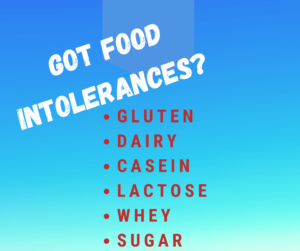Health Issues from Cow’s Milk
Contrary to the billions of dollars the dairy industry pays along with those glamour actors and models drinking, here are just a few reasons why cow’s milk is not an option for our family and why you might want to take a closer look a it’s use by your own family.
Growth Hormones
Hormones such as rBGH and rBST are genetically engineered hormones that are injected in cows to make them produce more milk. This causes problems in the milk and stimulates production of the AGF-1 hormone. IGF-1 promotes cell division, which can lead to cancer. Think of the teenage girls and how quickly they are developing physically. Growth hormones can also escalate the age at which a girl starts her menstrual cycle. Starting menstrual cycles early is linked to increased rates of breast cancer.
Antibiotics
Think of all the wonderful yogurt you are eating to put good bacteria in your body. Next think of all the antibiotics that kill good bacteria that they are injecting in cows. Doesn’t really make sense does it? 24 Hour Urinalysis testing reveals potential infections in the body and it surprises me how many women have these and don’t even know it. Left untreated, these can harm the body. Another reason nutritional testing is so valuable as we are looking ahead before conventional medical tests can sometimes see or before your first symptom appears.
Grain Fed
Most cows are grain fed. What happens when cows eat grain and corn? It makes them fat. What happens when we eat cows that eat grain? You get the picture. Most importantly, cows are herbivores. That means they should be eating GREENS. Greens provide the meat/milk with good bacterial and vital nutrients such as Vitamin A, D and K2. Cows that are grass-fed will not produce the toxic and dangerous mad cow’s disease.
Pasteurization
Clean, raw milk provides beneficial bacteria. Pasteurization destroys the good bacteria. It also denatures the structure of the milk proteins and fat into something than is less than healthy.
Lactose Intolerance and Digestibility
Most people lack the enzyme lactase that supports the body in breaking down milk sugar. The second highest good cause of allergies in body behind peanuts is cow’s milk. Milk protein can contain up to 25 various allergens causing moderate to severe symptoms.
What about Organic or Raw Milk?
I’m not a huge fan of conventional organic milk because while the milking cows may be antibiotic or growth hormone free, they are still typically not grass fed and free range. The quality of the milking cow’s life and the variety of grasses it’s able to graze is key in the nutritional value (or lack thereof) of the product.
Also, many organic milk brands are simply “farmer pledged” as organic as opposed to being tested and certified organic so read your labels and know your brands.
Don’t we need all the calcium milk provides?
Plant foods have as much if not more calcium than you get in milk. Plus, plant foods contain the proper ratios of magnesium and calcium. Cow’s milk does not contain the magnesium and calcium ratio necessary fro optimal absorption. One example, chia seeds contain 600 mg of calcium in 2 ounces. Milk contains 300 mg in one cup.
Safer options for cow’s milk are organic sources of plant-based milks such as almond, rice, hemp or coconut milk. Finding sources of clean, raw cow’s milk is a better option than pasteurized but raw goat’s milk is actually better due to the digestibility. Goat’s milk has been suggested as the best alternative to breast milk in cases where breast-feeding is not an option.
My challenge to you is to remove conventional dairy products from your diet for one week then share with me the difference in how you feel. I experienced a dramatic reduction in allergies, congestion and much improved digestion (less gas, bloating).


